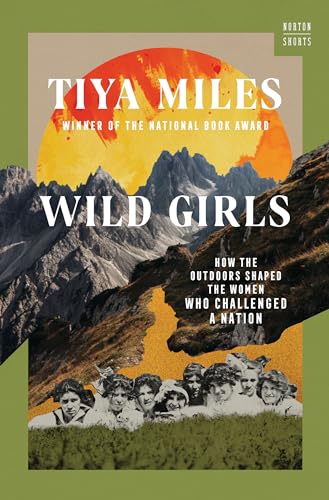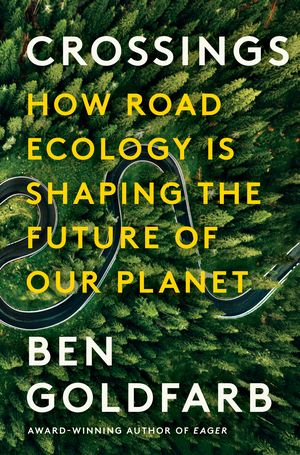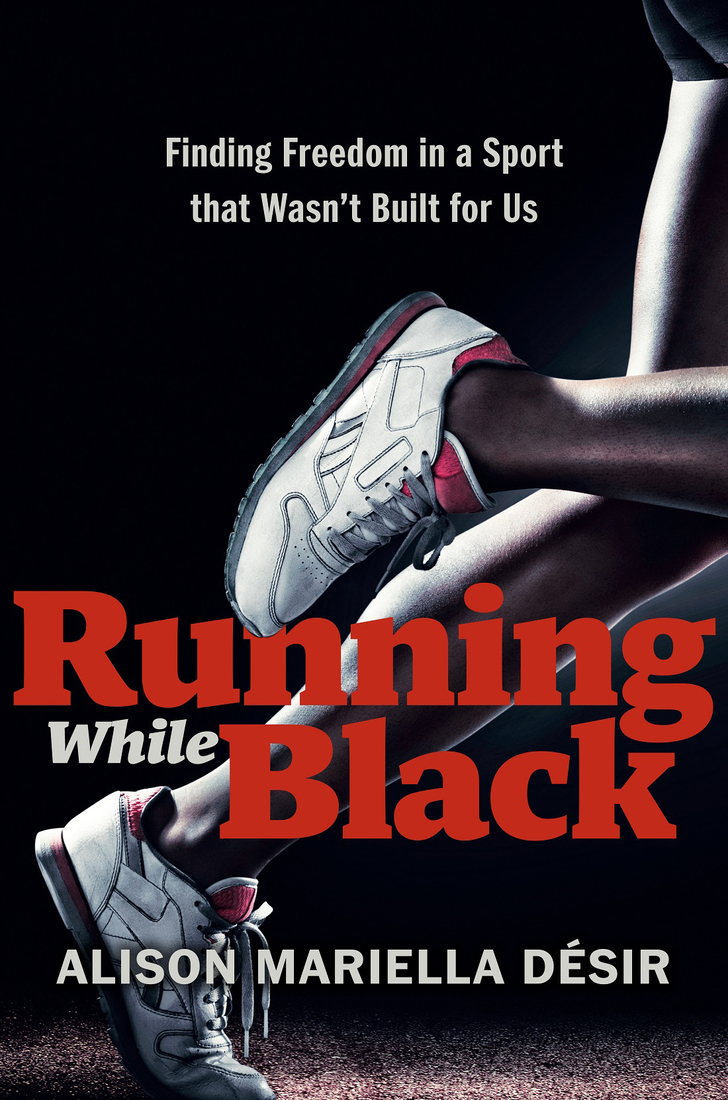Something about a new year makes us want to refresh our to-read (and to-listen and to-watch) lists. We’ve renewed our intentions to tackle that pile of books we want to read. It’s also the perfect time to tune into a podcast on a snowy hike or spend a chilly night watching a new documentary. Right now, an abundance of new releases has us excited to dive in. We asked some artists and tastemakers we respect to tell us what they’re excited about, right now.
Matika Wilbur

Wilbur, a photographer from the Swinomish and Tulalip Tribes, wanted to see a more nuanced representation of contemporary Indigenous people in the media. So she went out and did it herself. More than a decade and thousands of miles in the making, Project 562 is Wilbur’s new photography book. Starting in 2012, she traveled to all 562-plus Native American sovereign territories in the country and created portraits of the people she met along the way. The result is moving, joyful and rich. Wilbur also explores the complexity of Indigeneity as a co-host of the podcast All My Relations with Adrienne Keene.
Wilbur’s Picks:
Crying in H Mart: A Memoir by Michelle Zauner
Zauner’s memoir shares the story of her relationship with her Korean mother, from bonding over food while growing up to supporting her mother through her diagnosis of terminal cancer. “It made me think about these relationships in my life where the things that may bother me are things that I will long for after they’re gone,” Wilbur says. The book’s themes also resonate with the work she does on the podcast, All My Relations. “The fundamental principle of the podcast is that Indigenous values, ethics and teachings always center kinship and relationality”—the web of connectedness among everything—“where Western values, certainly in a capitalist system, favor individuality. And if we shared the fundamental framework to take care of one another, we would live in a very different society. Reading that book, it brought me back to thinking about these sacred roles we have with family.”
Reservation Dogs on FX
Many of Wilbur’s friends wrote, directed or produced the show, which follows the hijinks of four teenagers and their interactions with their community on the Muscogee Nation in Oklahoma. “Oh, I love it,” Wilbur says of the show. “It fills my heart with incredible joy to watch something that’s produced so well with such nuanced storytelling. It proves that when Native people are given the opportunity to tell stories about themselves and do it in good relationship with their community, family and fellow creatives, these incredible stories can happen because they don’t get watered down by outside perspectives. It’s this goal that many Native creatives have been working towards. We believe that representation without us is representation done to us. We have to find new and better ways and re-evaluate our storytelling practices.”
Remember by Joy Harjo, Illustrated by Michaela Goade
Wilbur has a 3-year-old daughter and has been reading lots of children’s books, too. They both love Remember, which features the poem written by Joy Harjo, poet laureate and member of the Muscogee Nation. It’s illustrated by Michaela Goade, a member of the Tlingit and Haida tribes. “It focuses on relationality,” Wilbur says. “I love reading that to my baby and it makes me feel this tremendous sense of comfort to read a book written by a Native woman, illustrated by a Native woman, to my Native daughter. It feels really good.”
Amber Wendler and Shaz Zamore
In Been Outside: Adventures of Black Women, Nonbinary, and Gender Nonconforming People in Nature, editors Shaz Zamore and Amber Wendler showcase a broad range of experiences and wonders found in nature through essays and poems. The 22 writers’ works connect to five major themes of identity, inspiration, ancestry, stewardship and community. The stories run the gamut from studying plants in South Africa to camping in Maui. Both editors’ outdoor and cultural interests are just as diverse. Wendler is a doctoral candidate in biological sciences at Virginia Tech. She loves birdwatching, running and backpacking, and can be found listening to the global-psychedelic-hard-to-categorize band Khruangbin. “Their music is funky and creative and always puts me in a good mood,” she says. Zamore, a STEAM Outreach Coordinator and Instructor at The ATLAS Institute at Colorado University Boulder, loves hiking, snowboarding and woodworking and is currently reading Braiding Sweetgrass by Robin Wall Kimmerer. But there’s (a lot!) more where that came from.
Zamore’s Picks:
The Wild Within: Climbing The World’s Most Remote Mountains by Simon Yates
“I’m leaning into more and more serious ski mountaineering, and I’m excited to read more stories of expeditions with a focus on nature,” Zamore says. Yates’s memoir recalls his expeditions and the changing world of mountaineering following a near-fatal expedition in the Peruvian Andes in 1985. Next up on Zamore’s list is Jeremy Jones’s The Art of Shralpinism.
Snow Films (and Music)
“It’s snowboarding season! So naturally I’m watching all of the premiering films,” Zamore says. “I really love everything from TGR (Teton Gravity Research), but “Flying High Again” is great—it has this nostalgic feel while bringing the newer styles of play like knuckle hucks and some really slick buttering into big mountain arenas. It’s got me stoked!” They also love Matchstick Productions’ “The Land of Giants,” featuring stunning shots of iconic mountains (and lots of people sliding down them, of course). “The features and lines are just unreal—it’s got me really excited to ride Alaska for the first time this winter,” Zamore says.
And if you’re wondering what they listen to while snowboarding? Two favorites are Little Dragon’s “Slipping into Color” and Emotional Oranges’ “Still Emo.” “Both of these albums have some fun grooves that, yes, I will blast during resort day snowboard runs,” Zamore says. “Emotional Oranges did a feature with Tkay Maizda, and I love her brilliance and flows so much.”
The ‘We Out Here’ Podcast with Alexi Grousis and Allison Jones
Black scientists share tales of exploration, discovery and the occasional mishap with hosts Alexi Grousis and Allison Jones. “Their prompting, editing and format is really excellent, Zamore says. “There are some real gems in their series so far.”
Wendler’s Picks:
Embrace Yoga’s Roots: Courageous Ways to Deepen Your Yoga Practice by Susanna Barkataki
Wendler has been reading up while completing her 200-hour yoga teacher training. “Through this book I’m reflecting on how to make yoga more inclusive and accessible, and honor its sacred traditions,” she says. “The practice of yoga, especially in outdoor settings, helps me be more mindful, centered and at peace.” Next on her reading list is Fresh Banana Leaves: Healing Indigenous Landscapes through Indigenous Science by Jessica Hernandez.
14 Peaks: Nothing Is Impossible
There are 14 peaks 8,000 meters or more above sea level—a number that’s significant because it’s generally understood to be around the point where there isn’t enough oxygen to sustain human life. 14 Peaks follows Nepalese mountaineer Nirmal Purja and his team as they attempt to climb all of them exponentially faster than anyone else has before. “I’ve rewatched this multiple times and I’m in awe each time,” Wendler says.
Life on Our Planet
“I’m a big fan of nature documentaries,” Wendler says. This newest addition is narrated by Morgan Freeman and directed by Steven Spielberg, covering 4 billion years of natural history from the very first living organisms to dinosaurs up to the present day.
Going Wild with Dr. Rae Wynn-Grant
The podcast’s tagline, “Not your average field trip,” is quite the understatement. “Wildlife biologist Dr. Rae Wynn-Grant brings listeners on adventures with her to incredible places like the African savannah and Madagascar rainforest while sharing her experiences as a Black woman scientist and highlighting other wildlife experts doing cool work,” Wendler says.
Shelby Stanger
The first thing to know about Stanger’s new book, Will to Wild: Adventures Great and Small to Change Your Life? It doesn’t simply advocate quitting your job to live the carefree life you’ve always dreamed of. Stanger does want you to think about what it means to leave your comfort zone and connect with nature. In the book, she also shares her own experiences alongside advice and stories from other adventurers. If reading it feels like getting advice from an old friend, you may recognize Stanger from her REI podcast, Wild Ideas Worth Living or her Trail Snacks newsletter.
Stanger’s Picks:
The Underworld: Journeys to the Depths of the Ocean by Susan Casey
“Susan was a guest on Wild Ideas Worth Living, and I couldn’t believe how much I learned about the deepest parts of our ocean,” Stanger says. In The Underworld, Casey brings readers on a journey to meet scientists and explorers working in these still-mysterious places. “It’s a great book if you want to learn more about deep sea exploration.”
Never Finished: Unshackle Your Mind and Win the War Within by David Goggins
Stanger has been listening to the second book by Goggins, a retired Navy SEAL and endurance athlete, while running. “It’s narrated by a mentor and friend named Adam Skolnick,” she says, “and Goggins pops in after every chapter to tell some behind-the-scenes stories. Having these guys in your ear while you run is pretty motivating.”
Dr. Srikumar Rao’s Episode on the Mindvalley Show with Vishen Lakhiani
“Because the world is so chaotic right now, and because I had to do a TEDx this summer, I’ve been studying a lot of personal development leaders and speakers,” Stanger says. “I really like Dr. Srikumar Rao, a mindset coach and author.” She recommends Rao’s episode on the personal growth podcast The Mindvalley Show, called “Proof That the Universe Is on Your Side,” to anyone with anxiety or feeling stressed. “Dr. Rao is calming and has a great personality.”
Weston Davis

As host of the REI Camp Monsters podcast, Weston Davis essentially has a Ph.D. in all things spooky. Davis shares strange happenings in the outdoors with immersive storytelling that’s inspired by old radio shows such as those by Orson Welles, or Harry Alan Towers’ “The Black Museum.” The podcast’s fifth season provides ample fodder for campfire tales, with stories about creatures like the Appalachian tailypo and the Fresno Nightcrawler. “We’ve had so many dedicated listeners send in suggestions about their hometown creatures, which can be a lot of fun to hear about and research,” Davis says. With seemingly endless material, he’s already looking forward to recording the next season; a possible Camp Monsters tour in REI stores; and his new Buried Legends podcast, which will explore equally eerie old stories.
Davis’ Picks:
The Tigers, They Let Me by Anis Mojgani
This deeply personal book of poems by Davis’ old friend (and the current Oregon Poet Laureate) explores solitude and connection. “Anis is an amazing person and when I want to get serious about reading, I read his poetry, because he’s vulnerable for a living,” Davis says. “He’s kind of pulling stuff out of his soul. It’s a heavy kind of honesty that takes real courage.”
For All Mankind on Apple TV+
Davis has another personal connection to this show—a friend, Wrenn Schmidt, stars in it as Margo Madison. “She does a killer job,” he says, explaining that with his busy schedule (four kids, two podcasts, and running his family’s lumber yard), he tends to gravitate toward supporting friends’ work when he has time to consume any culture. “It’s a really great series and an interesting concept.” The series imagines an alternate history in which the Soviet Union beats the American Apollo 11 crew to the moon—and so the space race continues.
Tiya Miles

Miles, a professor of history at Harvard University, studies and writes evocatively about African American, Native American and American women’s lives as well as the environment and climate change. Her latest book, Wild Girls: How the Outdoors Shaped the Women Who Challenged a Nation, ties many of her interests together. Miles traces the history of influential women like Harriet Tubman, Zitkála-Šá, and Grace Lee Boggs, all of whom had formative relationships with the natural world. “By thinking and acting outside, these girls who matured into women bent the future of the country toward freedom—for the enslaved, the colonized, the dispossessed, the sequestered, the suppressed, and the subjugated,” Miles writes.
Miles’ Picks:
The Great Simplification with Nate Hagens
“The Great Simplification with Nate Hagens is my go-to podcast for serious discussion of energy, the economy and the environment. Hagens suggests that human societies are hurtling toward disruptive change that will force a simplification of systems and expectations. He asks whether we will bend or break in the face of extreme challenges brought on by ecological overshoot and advocates for ways of life, often outdoor-oriented, that foster bending. Among the best features of this podcast are Roundtables that feature voices on topics like food and community, and the ‘Frankly’ series (named for one of Hagens’s dogs, Frank), which offers thoughtful short takes. Bonus: Hagens loves animals and often shares snapshots of life on his Midwestern farmstead.”
Front Country by Sara St. Antoine
“My second recommendation, Front Country, is on the lighter side—a middle grade/YA read for kids who love nature. This outdoor adventure novel by Sara St. Antoine (complete with a grizzly bear) sensitively folds exploration of the impacts of climate change into a charming coming-of-age tale. The story follows an earnest protagonist, Ginny Shepard, as she heads off for summer camp in the Rocky Mountains, where she will make friends of the human and non-human kind and confront her concerns about species extinction while embracing the possibilities of hope.”
David Henkes
If you’ve ever found a gem after spending time browsing the collection of reading material at REI, you have David Henkes to thank. Henkes has been the buyer for books and maps at the co-op since 2018, and his job is to find the most interesting non-fiction, adventurous fiction and useful published resources for customers to peruse—including the below book.
Henkes’ Pick:
Running While Black: Finding Freedom in a Sport That Wasn’t Built for Us by Alison Mariella Désir
Désir, an athlete and mental health advocate, shares her personal experience as a runner in this book. She also explores the historical and social context for why the sport has not always felt welcoming to Black people. This includes a timeline that juxtaposes major events in running history, including many major accomplishments by Black runners, with the social reality for Black people at the time. (At the time the Boston Athletic Association was established, for example, hundreds of lynchings still occurred each year in the U.S.) Henkes says reading it was eye-opening and made him reflect on how he might be perceived differently if he weren’t a white male. “Even if you’re not a runner, it’s an important conversation and it needs to be continued,” he says.
Ben Goldfarb

There is a lot more to animal-asphalt interactions than just roadkill. Goldfarb, an environmental journalist whose last book went deep on the life of the industrious beaver, widens the lens to wildlife and our global network of roads in his new book, Crossings: How Road Ecology Is Shaping the Future of Our Planet. “To us, roads are so mundane they’re practically invisible,” he writes. “To wildlife, they’re utterly alien.” Goldfarb embarks on a journey to learn about how roads have shaped wildlife in ways devastating and weird. Along the way he meets an oft-quirky assortment of folks who are working to undo some of the harm.
Goldfarb’s Pick:
Brave the Wild River: The Untold Story of Two Women Who Mapped the Botany of the Grand Canyon by Melissa Sevigny
“I recently had the pleasure of reading Melissa Sevigny’s outstanding Brave the Wild River, about a pair of female botanists who surveyed the Grand Canyon’s flora in the late 1930s. Melissa’s book is at once a high-spirited adventure story in the vein of The Emerald Mile and a thoughtful meditation on the history of women in science. Above all, it made me yearn to experience the Colorado River prior to the construction of Glen Canyon Dam, the concrete monolith that tamed the Grand Canyon’s wild floods, eroded its lovely beaches and distorted its ecosystem forever.”



